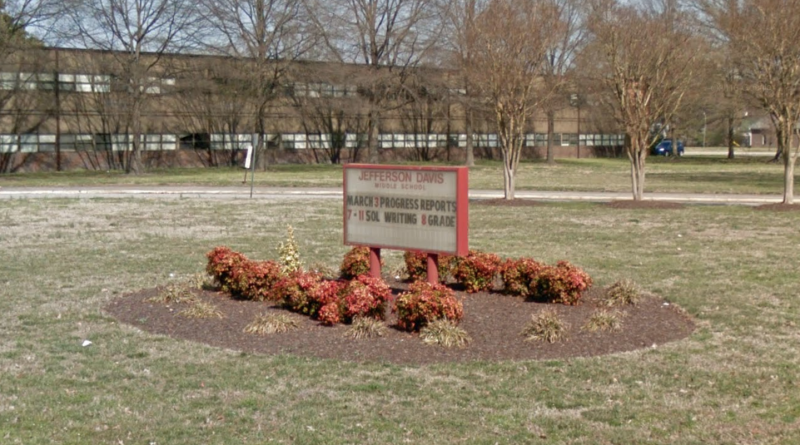Confederate Graffiti: The Men Behind the (Former) Road Signs and School Marquees of Hampton Roads
Today, we cover my personal “favorite” and the former namesake of my own junior high school in Hampton. The “big man” himself, whose chronically poor decision-making thankfully led the Confederacy to its ruin.
Jefferson Davis, the man whose name is often whispered with a mix of disbelief and astonishment. As the President of the Confederate States of America, Davis certainly left his mark on history, though perhaps not in the way he might have hoped.
Born in 1808 in Fairview, Kentucky, Davis’ early years gave little indication of the infamy that awaited him. His time at West Point was marked not by academic excellence but by participation in the infamous Eggnog Riot. Yes, you read that right. While future leaders were honing their skills, Davis was busy getting involved in alcohol-fueled escapades.
His political career began with a stint as a U.S. Senator from Mississippi, where he was known less for his legislative prowess and more for his staunch pro-slavery stance. This was a man who believed in the institution of slavery so fervently that he once declared it to be “a moral, a social, and a political blessing.” Talk about being on the wrong side of history.
As Secretary of War under President Franklin Pierce, Davis made the brilliant decision to introduce camels to the American Southwest. Because when you think of the arid deserts of Texas and Arizona, the first thing that comes to mind is, of course, camels. Unsurprisingly, the Camel Corps was a short-lived experiment.
But it was his tenure as the President of the Confederacy that truly showcased Davis’ talent for mismanagement. From the get-go, his leadership was marked by indecision, infighting, and a general lack of direction. While the Union had leaders like Lincoln and Grant, the Confederacy was stuck with Davis, who once tried to replace the highly competent General Joseph E. Johnston simply because of personal disagreements.
His inability to work with his own generals, combined with his refusal to establish a centralized command system, meant that the Confederate army was often left without clear direction. And let’s not forget his decision to move the Confederate capital from the easily defensible Montgomery, Alabama, to Richmond, Virginia, placing it perilously close to Union forces.
After the war, Davis was captured and charged with treason. Though he was never tried, he spent two years in prison, where he had plenty of time to reflect on his long list of questionable decisions. In his later years, Davis attempted to justify the Confederate cause, penning a memoir in which he defended the South’s decision to secede.
But history has not been kind to Davis, and for good reason. His leadership, or lack thereof, played a significant role in the Confederacy’s defeat.
So, as we look back on the life of Jefferson Davis, let’s remember him not as a hero but as a cautionary tale of what can happen when leadership goes awry. From eggnog riots to ill-advised camel corps to a series of military blunders, Davis’ legacy is a testament to the importance of competent leadership.

